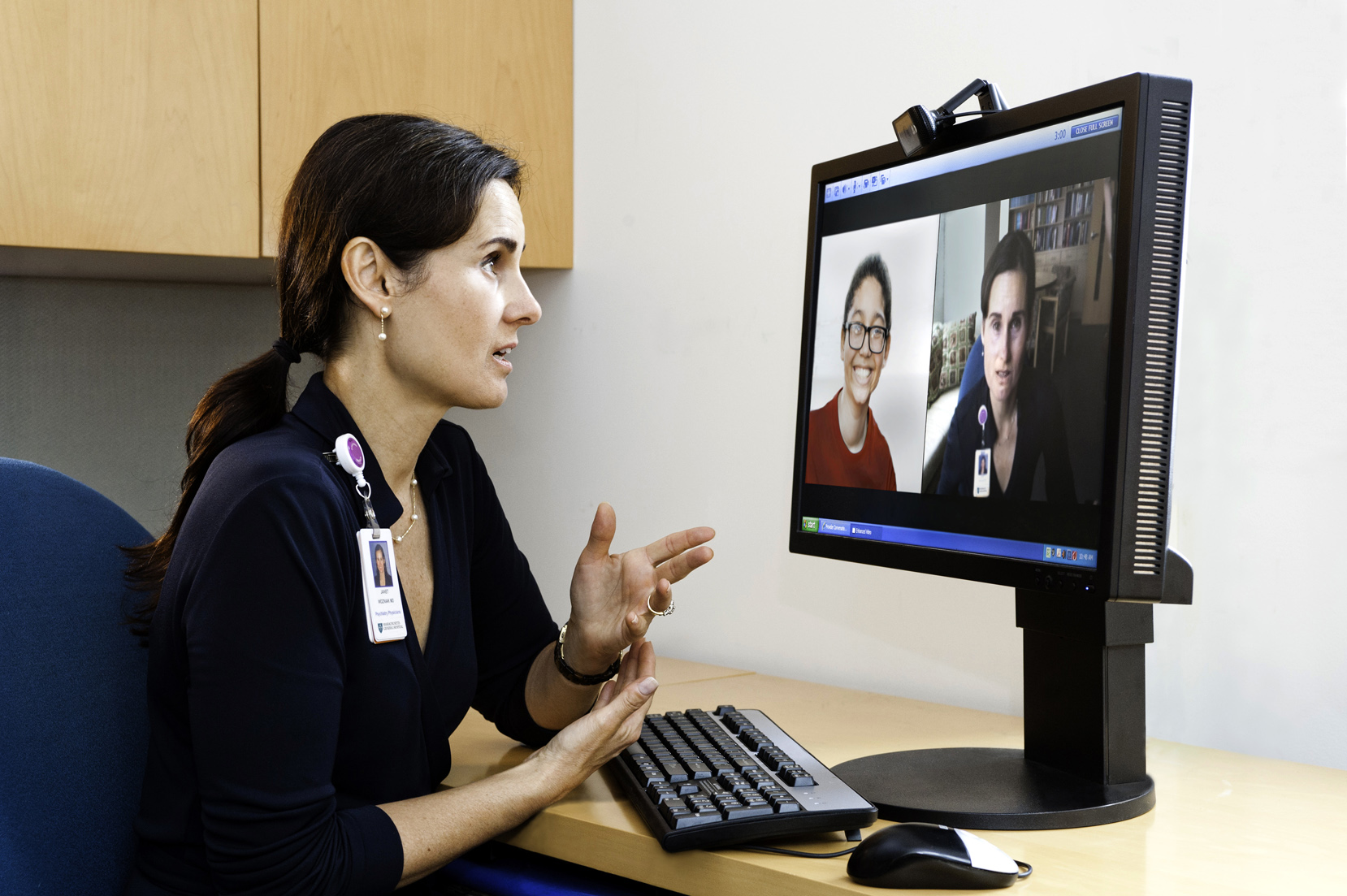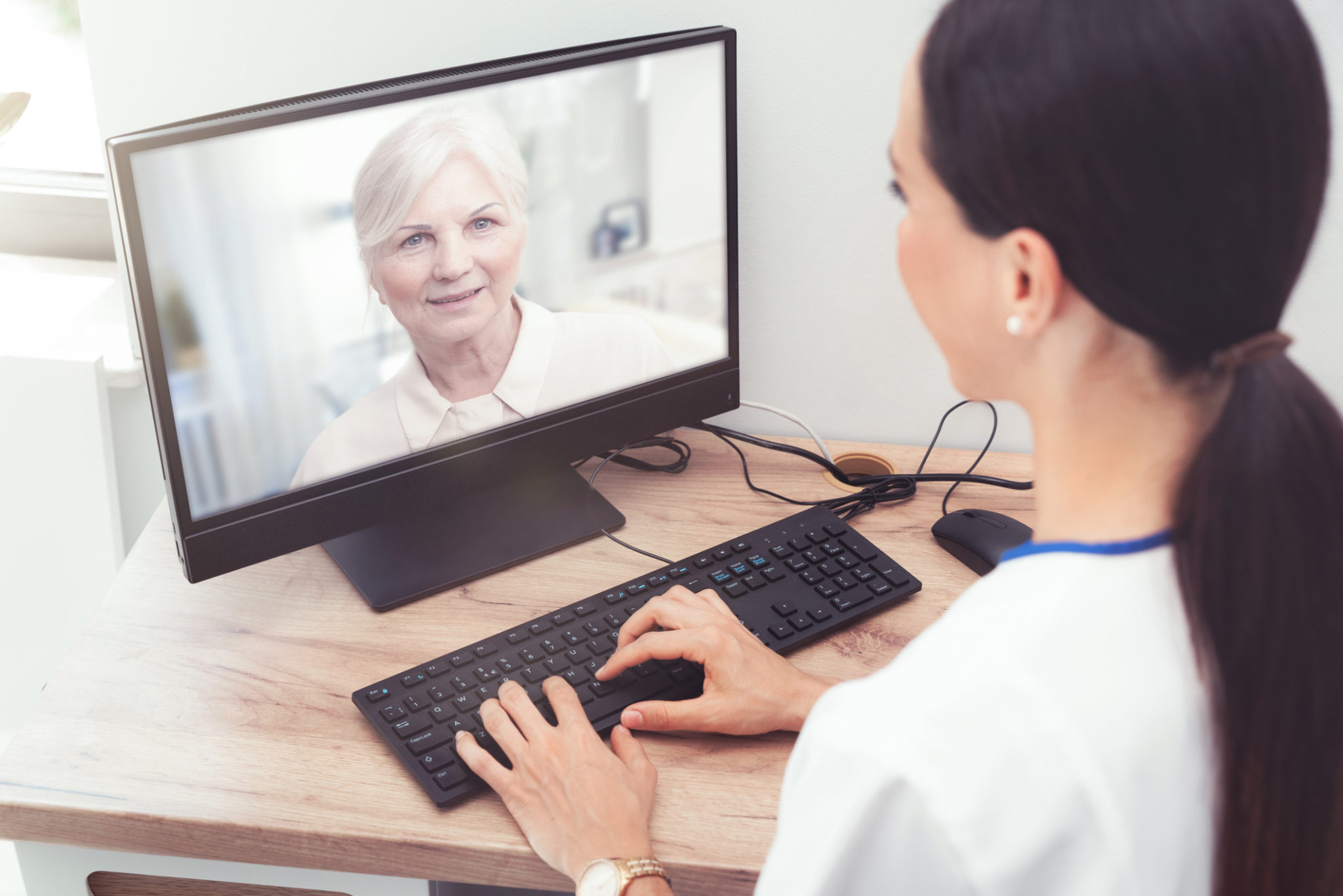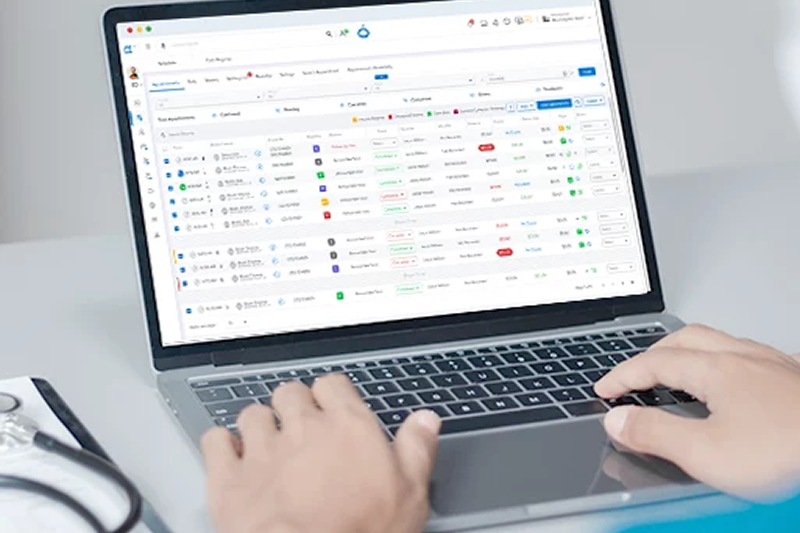Finding Telehealth Jobs For Dietitians: Your Guide To Virtual Nutrition Care
Detail Author:
- Name : Prof. Izabella Luettgen
- Username : gswift
- Email : alvena.satterfield@yahoo.com
- Birthdate : 1990-01-14
- Address : 978 Langosh Gardens Suite 975 Volkmanborough, OR 57033-8944
- Phone : 1-870-450-4050
- Company : Kohler Inc
- Job : Mechanical Engineer
- Bio : Ut velit id adipisci non eos. Molestiae placeat impedit illo officiis tempore nobis veritatis. Incidunt quisquam est qui et. Voluptatibus voluptatibus soluta aspernatur nulla est eius saepe.
Socials
twitter:
- url : https://twitter.com/judah_treutel
- username : judah_treutel
- bio : Dolorem nemo aut nobis consequatur sed omnis autem. Architecto quibusdam pariatur sit laudantium nisi. Atque non incidunt architecto nostrum quam facilis et.
- followers : 1403
- following : 636
linkedin:
- url : https://linkedin.com/in/judahtreutel
- username : judahtreutel
- bio : Hic et vel et. Expedita quaerat expedita ut ex.
- followers : 2032
- following : 129
instagram:
- url : https://instagram.com/judah.treutel
- username : judah.treutel
- bio : Et optio ex at sunt aut doloremque. Explicabo sed dolorum hic.
- followers : 421
- following : 752
tiktok:
- url : https://tiktok.com/@judah_xx
- username : judah_xx
- bio : Est aut totam voluptas possimus. Est et occaecati saepe reiciendis magnam aut.
- followers : 5780
- following : 2513
Are you a dietitian looking for new ways to help people with their health? Perhaps you want more flexibility in your work life. Maybe you just wish to reach more folks who need good food advice. Well, there's a big shift happening in how healthcare gets delivered. It's bringing exciting chances for dietitians. This change is all about using technology to connect with patients. It opens up a whole new world of work. It is that, in some respects, a truly big deal for many professionals.
Think about it: many people now get their medical advice online. This way of doing things, often called telehealth, uses electronic communication. It lets medical information travel from one place to another. This means you can help someone with their diet from your own home or office. They can be in their home or somewhere else. This method really took off during the pandemic. It gave a lot of people access to care they might not have gotten otherwise. So, this is a path that many are now exploring, naturally.
This way of working offers a fresh perspective on how dietitians can practice. It provides chances to work with a wide range of people. It also gives you more control over your schedule. For dietitians, this means you can shape your career in ways that fit your life. You can still make a real difference for patient well-being. This guide will walk you through what these roles involve. It will show you how to find them. It will also cover what you need to know to do well in them. It's pretty much a pathway to a different kind of practice, you know.
Table of Contents
- What Are Telehealth Jobs for Dietitians?
- Why Consider a Telehealth Role?
- What You Need to Succeed
- Finding Your First Telehealth Position
- The Future of Virtual Nutrition Care
- Frequently Asked Questions
What Are Telehealth Jobs for Dietitians?
Telehealth jobs for dietitians mean providing nutrition advice and support from a distance. You use computers, phones, or other electronic tools. This could be through video calls, phone calls, or secure messaging. It's a way to help people with their eating habits without being in the same room. The main idea is to exchange health information electronically. That, is how it works, basically.
The Rise of Virtual Care
Early in the pandemic, telehealth really grew quickly. Hospitals and health systems needed ways to keep helping patients. They had to do it safely. This sudden growth brought some differences in how things were done. Different places had their own ways of using this technology. However, groups like the American Medical Association (AMA) helped to make things more uniform. They worked to create clear guidelines. This helped make sure everyone was on the same page. So, this rapid change was also met with efforts to organize it, in a way.
Now, healthcare providers are still figuring out the best ways to use telehealth. They want to make it a regular part of the care they offer. The benefits of using technology go beyond just meeting a sudden need. It's about making healthcare more available and easier to use for everyone. This includes dietitians who can now reach more people. It's quite a big step forward, you know.
How It Works for Dietitians
For dietitians, this means you can hold a nutrition counseling session over a video call. You might review a patient's food diary through a secure online portal. You could even create meal plans and send them electronically. It's all about using digital tools to give care. Many physicians, about 74%, already work in practices that offer telehealth. This shows how common it has become in healthcare. So, you'd be joining a pretty established trend, really.
This way of working offers good things for patients and their families. They can get care from home. They don't have to travel. They save time and money. For dietitians, it means you can help people no matter where they live. You can also often set your own hours. It's a pretty flexible arrangement, that.
Why Consider a Telehealth Role?
Thinking about a telehealth role as a dietitian brings many good reasons. It's not just about using new tools. It's about changing how you work and who you can help. There are clear advantages for you as a professional. There are also clear advantages for the people you serve. It's something worth considering, definitely.
Benefits for Dietitians
More Flexibility: You can often set your own hours. You can work from home or another place you choose. This helps a lot with balancing work and life. It's a bit like having more control over your day, in a way.
Wider Reach: You are not limited by where you live. You can help people across different towns or even states. This means you can serve more people who need your help. It's almost like breaking down geographical walls, so.
Reduced Overhead: If you start your own practice, you might not need a physical office. This can save money on rent and other costs. It makes starting a business a little easier. You know, it cuts down on the initial expenses, basically.
New Skills: You will learn about new technologies and ways to connect with people. These skills are very valuable in today's world. They help you stay current in your field. It's like adding new tools to your professional toolbox, you see.
Work-Life Balance: Less commuting means more time for personal life. This can lead to less stress and more happiness. It really does make a difference for many people. It's pretty much about making your daily life work better, at the end of the day.
Benefits for Patients
Easier Access: People who live far from clinics or have trouble moving around can get care. They don't need to travel. This helps many who might otherwise miss out on nutrition help. It's incredibly helpful for those with limited mobility, really.
Convenience: Patients can have appointments from their home or office. This saves them time and travel costs. It fits into their busy lives more easily. It's just a lot less hassle for them, you know.
Comfort: Some people feel more relaxed talking about personal health matters from their own space. This can make them more open and honest. It helps them get better care. It's like creating a safe, familiar environment for them, basically.
Continuity of Care: It's easier to keep up with follow-up appointments. This leads to better long-term health results. Patients can stay connected with their dietitian more regularly. This is quite important for ongoing progress, so.
What You Need to Succeed
To do well in telehealth jobs for dietitians, you need more than just nutrition knowledge. You also need certain skills and tools. Knowing the rules for this type of care is also important. It's a bit different from traditional in-person work. You know, there are some specific things to consider.
Key Skills for Virtual Practice
Good Communication: You need to be clear and engaging through a screen. You have to listen well and ask good questions. Body language is harder to read online. So, your words must do more work. It's pretty much about being extra clear, you see.
Tech Savvy: You don't have to be an expert, but you should feel comfortable with computers and video platforms. You need to know how to troubleshoot small tech issues. This helps keep appointments running smoothly. It's like being able to fix a minor glitch, just a little.
Self-Motivation: Many telehealth roles involve working on your own. You need to be organized and able to manage your time well. No one is looking over your shoulder. You have to be good at keeping yourself on track. This is actually quite a big part of it, to be honest.
Adaptability: The world of telehealth changes. New tools and rules come out. You need to be ready to learn and adjust. Being open to new ways of doing things helps a lot. It's like being able to go with the flow, more or less.
Empathy Online: Showing you care and understand is still key. You need to find ways to build trust and connection even when not in person. This can be done through your tone of voice and how you respond. It's pretty much about making people feel heard, you know.
Setting Up Your Virtual Space
Your workspace matters a lot for telehealth. You need a quiet, private spot where you won't be disturbed. Good lighting helps people see you clearly. A stable internet connection is absolutely necessary. You don't want calls to drop. Having a professional background, even a simple one, helps too. It's like making sure your virtual office looks the part, sort of.
You also need reliable equipment. A good computer, a clear webcam, and a headset with a microphone are important. This helps ensure good sound quality. It makes it easier for you and your patients to hear each other. This setup is quite essential for smooth sessions, really.
Understanding Rules and Payment
The rules for telehealth can change depending on where you and your patient are. The American Medical Association (AMA) has been watching state laws closely. They want to make sure telehealth services are fair and easy to get. You need to know about the laws in your state and the states where your patients live. This is very important for practicing legally. It's a bit like knowing the local traffic laws, so.
Payment for telehealth services is another big part. Medicare covers some telehealth services. These services are listed using special codes called CPT codes. It's good to understand how these codes work. Knowing about payment rules helps you get paid for your services. The AMA has resources like a "telehealth quick guide" that talks about policy, coding, and payment ideas. Learning about these things helps you run your practice well. You know, it's pretty much about the business side of things, basically.
It's worth checking with insurance companies too. Many private insurers now cover telehealth. This has become much more common. Always make sure you understand what is covered before you start working with a patient. This avoids surprises later on. It's like doing your homework on the financial side, just a little.
Finding Your First Telehealth Position
Looking for telehealth jobs for dietitians can feel a bit different from traditional job hunting. The market has grown. This means there are more places to look. Knowing where to start and how to present yourself helps a lot. It's pretty much about knowing the ropes in this new space, you see.
Where to Look
Online Job Boards: Many big job sites list telehealth dietitian roles. Sites like Indeed, LinkedIn, and ZipRecruiter are good places to start. Use keywords like "remote dietitian," "virtual nutritionist," or "telehealth RD." This helps you find relevant postings. It's like using a search engine for jobs, basically.
Specialized Telehealth Platforms: Some companies focus only on telehealth services. They often hire dietitians directly. These platforms connect patients with providers. Doing a search for "telehealth nutrition companies" can show you some options. This is a very direct way to find these kinds of roles, so.
Hospital and Health System Websites: As hospitals bring telehealth into their regular care, they hire more virtual staff. Check the career pages of large health systems. They might have remote dietitian roles. This is a bit like looking for jobs at traditional places, but with a virtual twist, you know.
Networking: Talk to other dietitians. Join online groups or forums for nutrition professionals. People often share job leads or advice there. Sometimes, the best jobs come from who you know. It's pretty much about connecting with others in your field, really.
Professional Organizations: Groups like the Academy of Nutrition and Dietetics often have job boards or resources for members. They can also provide information on new trends and rules in telehealth. This is a quite good resource for staying informed, anyway.
Making Your Application Stand Out
When you apply for telehealth jobs for dietitians, highlight your tech skills. Mention any experience you have with video calls or online platforms. Even if it's not work-related, it shows you are comfortable with technology. This is pretty much a key thing employers look for, you know.
Talk about your communication skills. Explain how you build rapport with people, even from a distance. Give examples of how you've helped people achieve health goals. Show that you can work independently and manage your time. These are all things that make a good virtual dietitian. It's like painting a picture of your abilities, just a little.
Consider creating a professional online presence. A LinkedIn profile that showcases your skills and interests can help. You might even create a simple website or portfolio. This shows you are serious and ready for virtual work. It's a bit like having an online resume that really shines, so.
The Future of Virtual Nutrition Care
The role of telehealth in healthcare is only growing. It's clear that this way of delivering care offers many wins for patients and their families. It makes health services more accessible. It makes them more convenient. For dietitians, this means more chances to practice in new ways. It also means more chances to help a wider range of people. It's pretty much a very positive outlook, in a way.
The commitment to fair and accessible telehealth services continues. Organizations like the American Medical Association keep working on policies. They want to make sure telehealth works well for everyone. This ongoing work helps make the path clearer for dietitians looking into virtual roles. It's a bit like building a stronger foundation for the future, you know.
You can learn more about telehealth on our site. Also, check out other resources. For example, the AMA's quick guide offers important points on policy, coding, and payment for telehealth. These resources help dietitians understand the details of virtual practice. You can also link to this page for more information. Staying informed helps you succeed in this changing field. It's a rather important step for anyone looking to enter this area, frankly.
Frequently Asked Questions
Is telehealth a good option for dietitians?
Yes, it is, arguably. Telehealth offers dietitians many good things. It provides flexibility in work hours. It allows you to work from different places. You can reach more patients. It can also reduce costs if you run your own practice. Many dietitians find it a rewarding way to help people. It's pretty much a win-win for many, you know.
What qualifications do you need for a telehealth dietitian job?
You need to be a Registered Dietitian (RD) or Registered Dietitian Nutritionist (RDN). This is the basic requirement. You also need good communication skills. Being comfortable with technology is very important. You should be able to work independently. Knowing the rules for telehealth in different states is also key. It's like having your core skills plus some extra ones for the digital world, basically.
How much do telehealth dietitians make?
The pay for telehealth dietitians can change a lot. It depends on things like your experience. It also depends on where you work. Some dietitians work for hospitals or clinics. Others have their own private practice. Those with their own practice might set their own rates. Generally, it's competitive with in-person roles. It's a bit like any other job where pay varies, so. You can check job listings to get an idea of current rates. For more general information on dietitian salaries, you could look at resources from professional organizations, such as the Academy of Nutrition and Dietetics.

Telehealth: Fad or the Future of Therapy? | Practice Perfect

Telehealth Technologies to Get You Through COVID-19 - Review of

What is Telehealth and Complete Guide on Telehealth Services